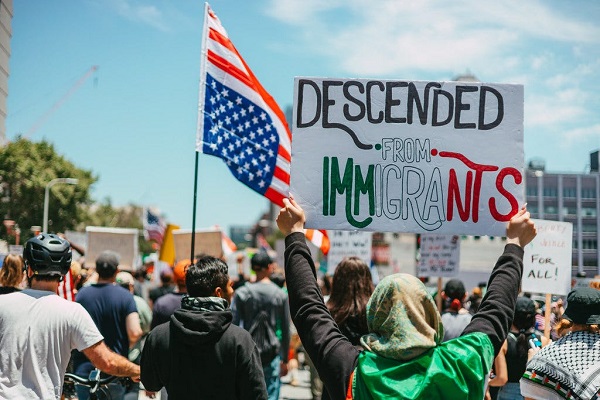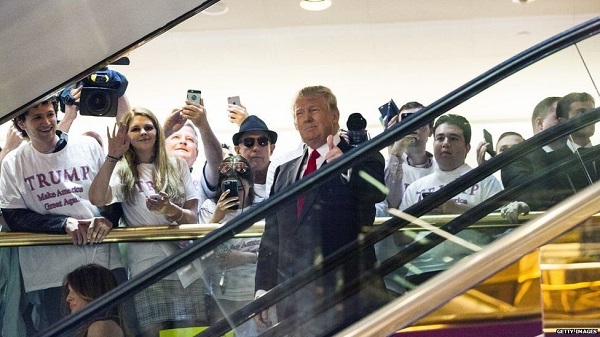Opinion
City Hall; Notice “The bear has been poked, don’t provoke.”

The recent debate over the Molly Banister could be seen as democracy at work and possibly an expose of city hall dysfunction.
At first reading of the bylaw to remove the road alignment it seemed supported by the Mayor, by the council and by the administration. Comments from some elected officials about campaign promises made it appear inevitable.
The public reacted and it appeared that city hall was out of sync with today’s reality.
The local newspaper did an editorial on September 29, declaring in bold headline that the “Road extension must be kept”. Writing ;”It’s surprising that public workers paid to plan for the city’s growth would do the opposite; not plan for the responsible development of the region.” “ What is portrayed as an environmental concern is really just an interest in keeping neighbourhood traffic down to a minimum,”
Former city manager, Craig Curtis, waded into the debate, questioning the recommendation and reminding us of past decisions that were essential to our development that were similar.
Legal opinions on historical commitments and legal obligations.
Knowledgeable residents debunked many of the environmental issues.
The local church came out in favour of the extension.
The Mayor who championed removal, declared herself in conflict, as she lives in the area, removed herself from voting before each reading.

Councillor Wong started off questioning, after the public hearing, why the administration would bring up a 250 foot bridge when an old man like himself could hop the creek?
Councillor Lee questioned why the city would emphasize the road would cause several instances of ecological damage when the other option of building houses on the creek would have the same effect? Councillor Lee admitted that the majority wanted the extension and voted against the removal.
Councillor Hendley, questioned the city about the future changes. How, when the city administration repeated that there is no current connection to Springfield Avenue, countered, that when the neighbourhood plan is presented it could then be connected, initiating another public hearing. She didn’t claim to know what the future would bring and wanted to leave all options opened.
Councillor Buchanan mentioned that in his non-councillor life he has witnessed the short-cutting of drivers that were of concern to neighbouring communities.
Councillor Higham, took note of the less than complete information on traffic. Bringing her own detailed analyses of traffic to the table.
Together they formed the majority that paralleled the wishes of the majority.
On the face of it, democracy won, a fragile democracy but still a democracy.
2 of the opposition councillors credited the support of the administration in buoying their determined support to remove the alignment, another one used the “Green” umbrella to support her opposition to keeping the alignment.
Poll after poll showed majority support for the extension, so why did we need to go through this stressful and expensive process? Why did the same traffic study get 2 extremely different interpretations?

City hall has been put on notice. Do their jobs, leave the politics and biases out of the equation. You get paid the big bucks to give your political masters the untarnished truth, so do it.
Someone said; “The bear has been poked, do not provoke”.
The next municipal election is on the horizon, provocation could mean great change. Not just at the ballot box.
Is it time for a shake-up and renewal at city hall? Just asking.
Christopher Rufo
The “No Kings” Protest Is Pure Fantasy

 Christopher F. Rufo
Christopher F. Rufo
The underlying theory is that Donald Trump is an authoritarian leader on the cusp of becoming king.
I spent Father’s Day weekend in Hood River, Oregon, and stumbled upon the local “No Kings” anti-Trump protest. The crowd was populated mostly by Baby Boomers, who appeared to be living out a political fantasy, in which they could “stop fascism” by reenacting the protest movements of their youth. One sign, typical of the genre, derided Trump as a “felon, rapist, con man”; another riffed on Mary Poppins, reading “super callous, fragile, racist, sexist, Nazi POTUS.”
The underlying theory of this protest, which reportedly drew upward of 5 million demonstrators nationwide, is that Donald Trump is an authoritarian leader on the cusp of becoming king. The only way to stop him is to flood the streets and persuade the American people that Trump is a rotten character with despotic ambitions.
The theory, of course, is nonsense. Trump is a duly elected president. He is working with Congress on the budget. His deportation policy, which lent momentum to the weekend’s demonstrations, is predicated on enforcing existing law. Though President Trump contested the results of his first reelection campaign, he ultimately relented and peacefully transferred power to President Joe Biden—hardly the behavior of a tyrant.
Yet the protests are not without utility for the Left. They are not intended to grapple with the reality of the Trump presidency but to submerge reality in fantasy. The first step in entrenching the Left’s fictions in the public mind is to cultivate a sense of hysteria. In the president’s first term, crowds wore vagina-shaped hats and marched in the bitter cold. The tone of the “No Kings” protest was no less absurd, with women in Handmaid’s Tale costumes warning that Trump would reduce them to sex slaves.
The next step is to turn public energy into a threat. As seen in Los Angeles earlier this month, the Left’s more aggressive factions can operate alongside “mostly peaceful protests,” aiming to provoke law enforcement into overreacting. During Trump’s first term, leftist activists often played a double game—promoting “nonviolent” demonstrations for women’s rights or racial justice while allowing more confrontational elements to intimidate Trump supporters.
This time, immigration is the flash point. Trump has tied his presidency to mass deportations. The Left believes it can stop him by carefully shaping public opinion. That means highlighting emotional—if sometimes misleading—stories of deportation victims and sympathetic portrayals of protesters clashing with National Guard troops. These narratives are designed to paint Trump as an authoritarian and the Left as the resistance, with the aim of driving his approval ratings low enough to weaken his presidency.
The irony is that Trump does not have the power of a king—or, arguably, even the full power of the presidency, as established in Article II of the Constitution. District courts have blocked many of his policies down to the most minute detail, sometimes within hours of their adoption. A federal judge even prohibited the administration from removing gender-related content from government websites.
At the Hood River protest, I noticed a generational divide. The Baby Boomers were the most gullible, engaging in 1960s protest nostalgia and genuinely believing that America was under threat of incipient fascism. The younger generation, which came to political consciousness during the Trump era, seemed more skeptical. At the edge of the protest, I saw a group of teenage boys holding signs that read “Ban Onions” and “Ban Scratchy Blankets.” They seemed to see through the fiction of “No Kings,” viewing left-wing Baby Boomers, rather than Trump, as the rightful targets of satire and rebellion.
I hope that this attitude prevails. For 60 years, the Boomers have held a grip on the American political narrative; it has not been a story that conduced to national well-being. America elected Trump, in part, to demolish the remaining fantasies of the 1968 generation. Yes, no kings—and no more lies.
Invite your friends and earn rewards
Bruce Dowbiggin
FUBAR: How Trudeau & Trump Rewrote This Century’s Political Handbook

Let’s ignore the roar this month and take a spin in the Wayback machine to a decade ago this week. Both the U.S. and Canada were on the precipice of momentous decisions WITH new leaders who resonate today. In both cases those leaders, for better or worse, changed politics irrevocably. They are going to be the most impactful people of their century so far. One made his party into the Official Monster Raving Loony Party. While the other brought populist nativism and reality TV to the voters.
So who’s crying now? In the case of Donald Trump this week marks a decade since his descent on the gold escalator in his NYC tower. As this shows, most of the popular press were amused by the decision of the mogul/ TV star to seek the GOP leadership and, eventually, the presidency. They laughed. Oh, how they laughed.
In the minds of the DC media party, the 2016 election was going to be Jeb Bush, brother of George W. and son of George H.W., for the GOP. He would run against Hillary Clinton, the DEMs slam-dunk candidate. So why was Trump wasting his money on a “vanity” candidacy? Anyone with a brain could see he was throwing away his money. The media, who’d been his pal, felt pity.
Except we now know that Trump had identified a significant segment of the GOP voting population who were mad as hell and were not going to buy Jeb’s “compassionate” approach or Marco Rubio’s DC-centric policies. They wanted to close the border, stop foreign wars and protect U.S. industry. To, ahem, Make America Great Again.
The rest is history. Into this void Trump launched a MAGA movement that terrified the establishment. Where once he’d been on their talk shows, making wise with big shots and dining out on “You’re fired”, he was now the target of a massive smear campaign alleging racism, sexism, homophobia and leaving the toilet seat up. None of it worked as it was supposed to. In fact, his obstinacy in the face of it all endeared him to his followers.

Trump won a historic victory over Clinton in 2016, absorbed four years of impeachment, criminal charges, Russia collusion hoaxes and more. Buttressed by MAGA, he outlasted them all, Then COVID hit, the DEMs “found” 17 million “new” voters , and it seemed Trump was a spent force.
Not so fast. Having spent all their energies on replacing Trump with a man with the mental capacities of a carrot, the DEMs and their followers were left with Kamala Harris. IOW nothing. Then came the thunderbolt of Elon Musk buying Twitter (now X) breaking the legacy media’s stranglehold on information. People learned how the media grandees had cooked the books. Unable to control the press Trump’s fanatical opponents resorted to hoping someone would shoot Trump. Even that failed. Twice.
Now we have Trump.2. His legacy is still under siege from his enemies and some of his former friends. He’s stage managing a potential nuclear war with Iran. He’s redefining the world economy. He’s cutting the financial ties that support radical political action. He’s still furiously tweeting. It could all go terribly wrong.
But the fact remains. Love him or hate him, he’s the most impactful American in the 21st century. His polling is better than in 2016. A random sample of his hubris, here’s this note threatening Khameini while adding, “thank you for your attention in this matter”. Incorrigible.

Put simply, he has changed how politics functions in the America. Just ask these Bush Republicans. His audacity and pitiless style— thought to be political poison— have re-written the book on what works. Politics will never ever be the same down south.
The same can be said for the style of Justin Trudeau, scion to the legacy of his father. He, too, was dismissed as a lightweight when he made this political aspirations clear. While Trump could at least cite his business and TV career, Trudeau’s resume was wafer thin. Ski instructor. One-term drama teacher. A fanciful D’Artagnan he posed and preened for the cameras. A combination of his mother’s intellect and his father’s vanity he could easily have crashed and burned.
But by 2015 his father’s Liberal party was in big trouble. On the heels of the sponsorship scandal, they tried re-create PET in Stephane Dion and Michael Ignatieff. Bad idea. In the face of extinction, all it had was Trudeau’s vedette appeal and a population bored with Stephen Harper. Lucky for Liberals, Canada’s elites craved the novelty of Boy Trudeau on the cover of GQ.
Trudeau played the Sunny Ways card into a decade as Canada’s PM. His modest accomplishments— a dental plan, assisted suicide— were buried in three Woke terms of climate hysteria, corruption, fake Rez murder genocide, creating a real-estate bubble economy, allowing China to set up a money-laundering in the major cities and the explosion of drug trafficking to where the fentanyl El Chapo and his pals took up residence in Toronto. The RCMP were discouraged from investigating any and all his uglier conflicts.
His three successful elections owed a lot to mediocre CPC leaders and a perpetual fear— stoked by friendly media— that Trump would get them all killed. He was also buoyed by a Family Compact that sloughed off his many gaffes— standing O for a Nazi in Parliament?— while portraying Pierre Poilievre as a robotic Trump clone.

Like Trump, Trudeau defined a style of politics for Boomer Canada, long on Woke platitudes, short on concrete policy. When CDNs showed they didn’t care about defence, balancing budgets or rule of law in those three votes, Trudeau took the hint. He squashed the Truckers, forfeited their savings, locked them in prison for “mischief”. And got the NDP to go along.
When his own bill finally came due, he skedaddled to a cozy pension and an afterlife in the ranks of international NGOs. Leaving Mark Carney a toxic legacy. Leftist politicians will be trying to emulate his escape act for decades.
Right-wing politicians will do the same after Trump. Some might even be Trumps themselves. So dismiss these two at your peril. For their nations and the world they called the shot. Bullseye.
Bruce Dowbiggin @dowbboy is the editor of Not The Public Broadcaster A two-time winner of the Gemini Award as Canada’s top television sports broadcaster, his new book Deal With It: The Trades That Stunned The NHL And Changed hockey is now available on Amazon. Inexact Science: The Six Most Compelling Draft Years In NHL History, his previous book with his son Evan, was voted the seventh-best professional hockey book of all time by bookauthority.org . His 2004 book Money Players was voted sixth best on the same list, and is available via brucedowbigginbooks.ca.
-

 Alberta2 days ago
Alberta2 days agoCalls for a new pipeline to the coast are only getting louder
-

 Business2 days ago
Business2 days agoCanada’s economic pain could be a blessing in disguise
-

 Censorship Industrial Complex2 days ago
Censorship Industrial Complex2 days agoJordan Peterson reveals DEI ‘expert’ serving as his ‘re-education coach’ for opposing LGBT agenda
-

 Alberta2 days ago
Alberta2 days agoUnified message for Ottawa: Premier Danielle Smith and Premier Scott Moe call for change to federal policies
-

 Economy2 days ago
Economy2 days agoOttawa’s muddy energy policy leaves more questions than answers
-

 Education2 days ago
Education2 days agoStudents can’t use AI to cheat on standardized tests
-

 International2 days ago
International2 days agoTrump puts new price tag on Canada joining “Golden Dome”
-

 conflict2 days ago
conflict2 days agoTrump dismisses US intelligence that Iran wasn’t pursuing nuclear bomb before Israeli attack






